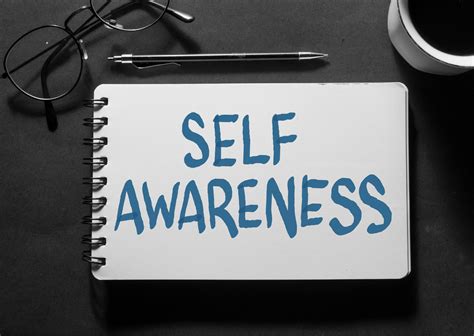Self-awareness - The Path to Personal Growth and Emotional Intelligence
Self-awareness FAQ
What does self-awareness mean?
They said that self-awareness is the ability to look inward, think deeply about your behavior, and consider how it aligns with your moral standards and values. They argued that when your behavior is out of alignment with your standards, you feel uncomfortable, unhappy and negative.
How does self-awareness develop?
They start to see themselves as separate from their parents, recognize their own name, and use pronouns like “I” and “me.” Self-awareness — the ability to focus attention on ourselves and to self-evaluate — continues to develop and advance throughout our lifetime.
What are the benefits of self-awareness?
As you might imagine, there are many benefits to practicing self-awareness: It can make us more proactive, boost our acceptance, and encourage positive self-development (Sutton, 2016).
Are You self-aware?
In fact, only 10–15% of those in Eurich’s (2018) study displayed self-awareness, although most of us believe we are self-aware. To improve self-awareness, Eurich (2018) recommends introspection, but with a focus on asking oneself the right questions.
What is self-awareness & why is it important?
Self-awareness is your ability to perceive and understand the things that make you who you are as an individual, including your personality, actions, values, beliefs, emotions, and thoughts. Essentially, it is a psychological state in which the self becomes the focus of attention.
What does it mean to be self-aware?
Being self-aware is all about having an understanding of your own thoughts, feelings, values, beliefs, and actions. It means that you understand who you are, what you want, how you feel, and why you do the things that you do. What are the four keys to self-awareness?
What is the difference between self-knowledge and self-consciousness?
According to these authors, self-consciousness can be an aspect of self-awareness. When you focus and identify elements of your internal self — beliefs, values, purpose, or emotions — you become self-conscious. On the other hand, self-knowledge, they propose, is the result of practicing self-awareness.
Self-awareness References
If you want to know more about Self-awareness, consider exploring links below:
What Is Self-awareness
- https://www.verywellmind.com/what-is-self-awareness-2795023
- https://www.betterup.com/blog/what-is-self-awareness
- https://positivepsychology.com/self-awareness-matters-how-you-can-be-more-self-aware/
- https://hbr.org/2018/01/what-self-awareness-really-is-and-how-to-cultivate-it
- https://psychcentral.com/health/self-awareness
- https://www.psychologytoday.com/us/blog/click-here-happiness/201903/what-is-self-awareness-and-how-do-you-get-it
- https://www.understood.org/en/articles/the-importance-of-self-awareness
- https://warwick.ac.uk/services/wss/topics/selfawareness
- https://www.mindtools.com/awe5sru/developing-self-awareness
Self-awareness Information
Explore Related Topics
Emotional Wellness and Diabetes Control: How to Foster a Positive Mindset for Better Health?
Discover the impact of emotional well-being on diabetes control
